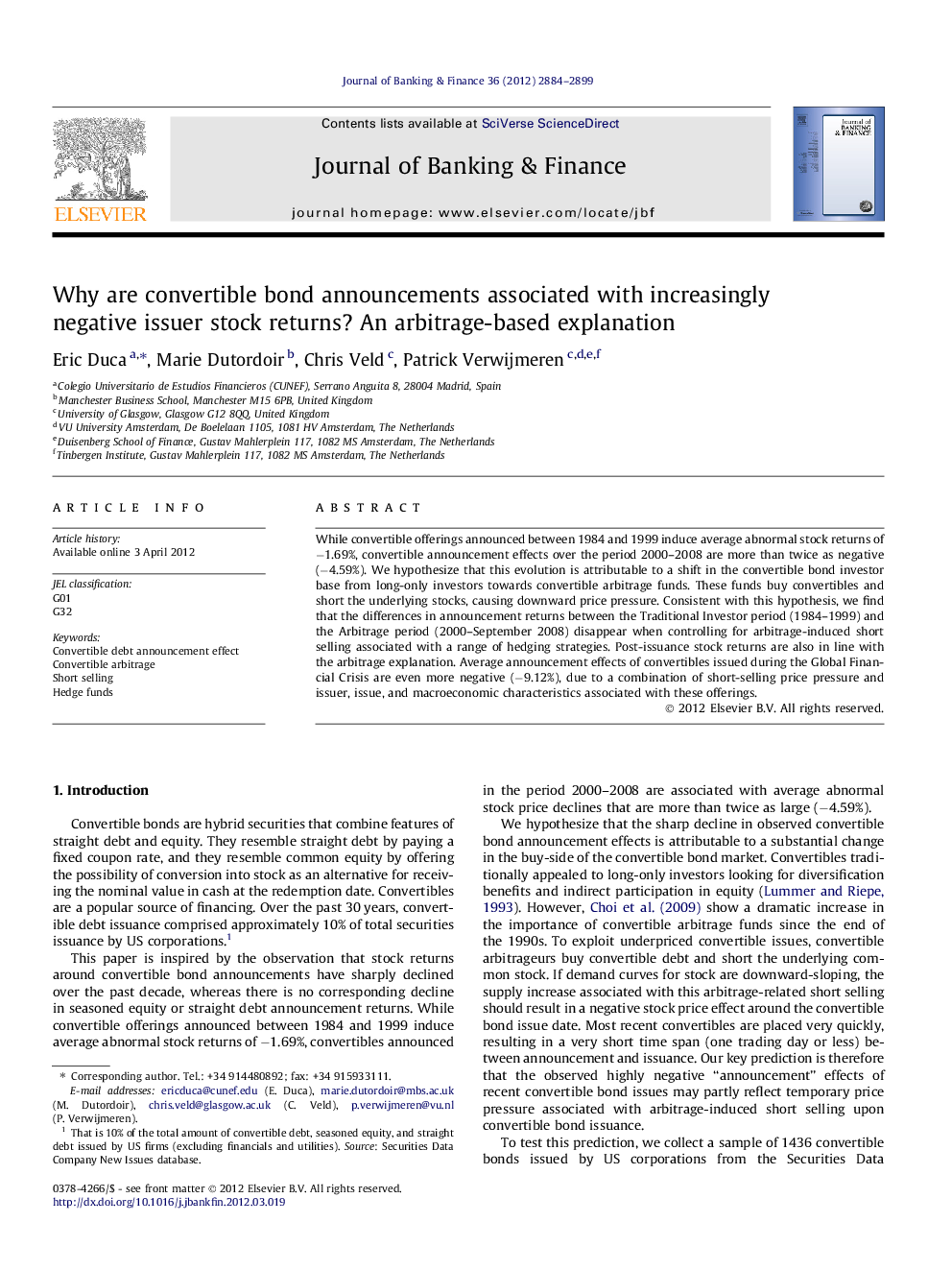| Article ID | Journal | Published Year | Pages | File Type |
|---|---|---|---|---|
| 5089477 | Journal of Banking & Finance | 2012 | 16 Pages |
Abstract
While convertible offerings announced between 1984 and 1999 induce average abnormal stock returns of â1.69%, convertible announcement effects over the period 2000-2008 are more than twice as negative (â4.59%). We hypothesize that this evolution is attributable to a shift in the convertible bond investor base from long-only investors towards convertible arbitrage funds. These funds buy convertibles and short the underlying stocks, causing downward price pressure. Consistent with this hypothesis, we find that the differences in announcement returns between the Traditional Investor period (1984-1999) and the Arbitrage period (2000-September 2008) disappear when controlling for arbitrage-induced short selling associated with a range of hedging strategies. Post-issuance stock returns are also in line with the arbitrage explanation. Average announcement effects of convertibles issued during the Global Financial Crisis are even more negative (â9.12%), due to a combination of short-selling price pressure and issuer, issue, and macroeconomic characteristics associated with these offerings.
Related Topics
Social Sciences and Humanities
Economics, Econometrics and Finance
Economics and Econometrics
Authors
Eric Duca, Marie Dutordoir, Chris Veld, Patrick Verwijmeren,
